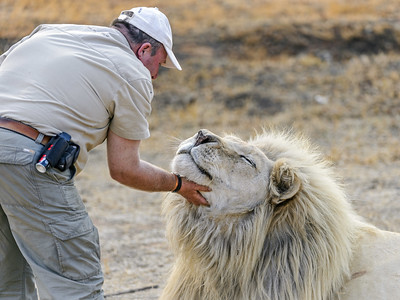Posts Tagged ‘meaning’
It’s not the work, it’s the people.
 I used to think the work was most important. Now I think it’s the people you work with.
I used to think the work was most important. Now I think it’s the people you work with.
Hard work is hard, but not when you share it with people you care about.
Struggle is tolerable when you’re elbow-to-elbow with people you trust.
Fear is manageable when you have faith in your crew.
You’re happy to carry an extra load when your friend needs the help.
And your friend is happy to do the same for you.
When you’ve been through the wringer a teammate, they grow into more than a teammate.
If you smile at work, it’s likely because of the people you work with.
And when you’re sad at work, it’s also likely because of to the people.
When you care about each other, things get easier, even when they’re not easy.
Stop what you’re doing and look at the people around you.
What do you see?
Who has helped you? Who has asked for help?
Who has confided in you? To whom have you confided?
Who believes in you? In whom do you believe?
Who are you happy to see? Who are you not?
Who will you miss when they’re gone?
For the most important people, take a minute and write down your shared experiences and what they mean to you.
What would it mean to them if you shared your thoughts and feelings?
Why not take a minute and find out?
Wouldn’t work be more energizing and fun?
If you agree, why not do it? What’s in the way? What’s stopping you?
Why not push through the discomfort and take things to the next level?
Image credit — HLI-Photography
Measureable or magical?
 We all have to-do lists. We add things and we check them off. This list grows and shrinks. We judge ourselves negatively when we check off fewer than expected and positively when we check off more than that. But what’s the right number of completed tasks for us to feel good? How many completed tasks is enough?
We all have to-do lists. We add things and we check them off. This list grows and shrinks. We judge ourselves negatively when we check off fewer than expected and positively when we check off more than that. But what’s the right number of completed tasks for us to feel good? How many completed tasks is enough?
If you complete one task per week that saves $5000, is that enough? Is it enough to complete fifty tasks per year? If you create the conditions that make possible a new product line that delivers $1B over three years, but you do that only once every five years, is that enough? Is it enough to do just that one right thing over five years? What does it look like to others when you complete one exceptionally meaningful task every five years? I think it looks like most of the time you are doing very little.
Sometimes you complete small things and sometimes you don’t. And sometimes you learn what doesn’t work and that’s the completed task. And sometimes there are long stretches where nothing is accomplished until you create something magical. Counting tasks is no way to go through life.
But counting and measuring is all the rage. Look at your yearly goals. Do ten of these. Run six of those. Complete twelve of the other. Why do we think we can predict what we should do next year? Even sillier, do we really believe we know how many of these, those, and the others we will be able to get done next year? C’mon. Really?
What if all this counting prevents us from imagining the future? And what if our unhealthy fascination with measuring blocks us from creating it?
If it’s all about the measurable, there’s no room for the Magical.
Why not make some room for the Magical?
Image credit — Philip McErlean
The Frustration Equation
 For right frustration to emerge, you need an accurate understanding of how things are, a desire for them to be different, and a recognition you can’t remedy the situation.
For right frustration to emerge, you need an accurate understanding of how things are, a desire for them to be different, and a recognition you can’t remedy the situation.
The emergence of your desire for things to be different starts with knowing how things are. And to see things as they are, you’ve got to be in the right condition – well-rested, unstressed, and sitting in the present moment. When you’re tired, stressed, or sitting in the past or future you can’t pay attention. And when you don’t pay attention, you miss details or context and see something that isn’t. Or, if you’re tired or stressed you can have clear eyes and a muddy interpretation. Either way, you’re off to a bad start because your desire for things to be different is wrongly informed. Sure, your misunderstanding can lead to a desire for things to be different, but your desire is founded on the wrong understanding. If you want your frustration to be right frustration, seeing things as they are is the foundational step. But it’s not yet a desire for things to be different.
Your desire for things to be different is a subtraction of sorts – when how things are minus how you want them to be equals something other than zero. (See Eq. 1) Your brain-body uses that delta to create a desire for things to be different. If how things are is equal to how you want them to be, the difference is zero (no delta) and there is no forcing function for your desire. In that way, if you always want things to be as they are, there can be no desire for difference and frustration cannot emerge. But frustration can emerge if you know how you want things to be and you recognize they’re not that way.
Eq. 1 Forcing Function for Desire (FFD) = (how things are) – (how you want them to be)
There is a more complete variant of the above equation where FFD is non-zero (there’s a difference between how things are and how you want them) yet frustration cannot emerge. It’s called the “I don’t care enough” variant. (See Eq. 2) With this variant, you recognize how things are, you know how you want them to be, but you don’t care enough to be frustrated.
Eq. 2 FFD = [(how things are) – (how you want them to be)] * (Care Factor)
When you don’t care, your Care Factor (CF) = 0. And when the non-zero delta is multiplied by a CF of zero, FFD is zero. This means there is no forcing function for desire and frustration cannot emerge. But this is not a good place to be. Sure, frustration cannot emerge, but when you don’t care there is no forcing function for change. Yes, you see things aren’t as you want, but you go along for the ride and don’t do anything about it. I think that’s sad. And I think that’s bad for business. I’d rather have frustration.
Eq. 2 can be used by Human Resources as an Occom’s Razor of sorts. If someone is frustrated, their CF is non-zero and they care.
Now the third factor required for frustration to emerge – a recognition you can’t do anything about the mismatch between how things are and how you want them. If you don’t recognize you can’t do anything to equalize how things are and how you want them, there can be no frustration. Think – ignorance is bliss. If you think you can do something to make how things are the same as how you want them, there is no frustration. Because it’s important to you (CF is non-zero), you will devote energy to bringing the two sides together and there will be no frustration. But when there’s a mismatch between how things are and how you want them, you care about making that mismatch go away, and you recognize you can’t do anything to eliminate the mismatch, frustration emerges.
What does all this say about people who display frustration? Do you want people that know how to see things as they are? Do you want people who can imagine how things can be different? Do you want people who understand the difference between what they can change and what they cannot? Do you want people who care enough to be frustrated?
Image credit — Atilla Kefeli
What’s a dinosaur to do?
 When you do something for a long time, the physical and mental muscles you exercise get stronger and you get better at that activity. But where the muscles you use get stronger, the ones you don’t use atrophy and you get worse at all the other things.
When you do something for a long time, the physical and mental muscles you exercise get stronger and you get better at that activity. But where the muscles you use get stronger, the ones you don’t use atrophy and you get worse at all the other things.
When you do something for a long time, people see you as someone who does that one thing. And because it’s easy for everyone, that same old work lands on your desk and the system reinforces the problem. The company knows it will get done quickly and well, and because you’ve done it before, it’s easy for you. But what’s good and easy in the short term may not be so good and easy in the long term. When you do what you did last time, you get stale and you don’t grow. It’s the same for your career. When they see only one slice of you, there’s a long-term downside
When you look at the same old problems for a long time, you see only the same old solutions. And more troubling, you’re blind to your blindness. If you’ve solved the same family of problems for the last decade, you won’t see the new solutions made possible by developments in new areas. And more troubling, you won’t see that it’s time to solve new problems because the same old problems find your desk.
What’s a dinosaur to do?
Pair up with a younger person who wants to learn and teach them how to solve problems. Their energy will rub off on you and your smarts will contaminate them. A fair trade for both. Teach them how to understand the situation as it is – both in the problem space and political space. Teach them how to read the tea leaves and hear what’s unsaid. You’ll learn you know far more than you thought and you’ll get to show your whole self to your younger partner in crime.
Put them in a position to succeed and take pride in their success. Give them credit and revel in their development. Help them stretch and protect them from breaking. Keep them safe and help them live dangerously. Provide air cover as only you can, and do it with plausible deniability. You will get great joy (and energy!) from this.
When you’re low on energy, help people. When you’re down in the dumps, take someone to lunch and listen to them. When you’re tired of the same old work, help people do new work. And when you want to feel good about what you know, teach people.
At this point in your career, you have all you need and plenty to spare. Ground yourself in your abundance and give it away. Everyone will be better for it, including you.
Image credit — Steve Walker
Happier and More Thankful
 What could we change to become happier?
What could we change to become happier?
Happiness comes when our reality (how things really are) compares favorably with our expectations. If happiness comes from the comparison between how things are and our expectations, wouldn’t we be happier with any outcome if we change our expectations of the outcome? But how are expectations defined? What makes an expectation an expectation? Where do our expectations come from?
If we expect to have no control over the outcome, wouldn’t we be happier with any outcome? Aren’t we the ones who set our expectations? And hasn’t the Universe told us multiple times we don’t have control? If so, what’s in the way of giving up our expectations of control? What’s in the way of letting go?
What could we change to become more thankful?
Thankfulness comes when our reality, what we see or recognize, compares favorably with how we think things should be. If thankfulness comes from the comparison between what is and what should be, what if we changed our shoulds? Wouldn’t we be more thankful if we lessened our shoulds and reality compared more favorably? But how are shoulds defined? What makes a should a should? Where do our shoulds come from?
If we can help ourselves believe we don’t have control over how things should be, wouldn’t we be more thankful for how things are? And aren’t we the setters of our shoulds? And hasn’t the Universe often told us our shoulds have no control over it? If so, what’s in the way of giving up the belief that our shoulds have control over anything? What’s in the way of letting go?
Shoulds and expectations are close cousins and both influence our happiness and ability to be thankful.
At this Thanksgiving holiday, may we be aware of our shoulds and enjoy our friends and family as they are. May we be aware of our expectations and enjoy the venue, the food, the weather, and the conversations as they are. May we suspend our natural desire to control things and be happy and thankful for things as they are.
And may we love ourselves as we are.
Happy Thanksgiving.
Mike
Image credit — Bennilover
When You Want To Make A Difference
 When you want to make a difference, put your whole self out there.
When you want to make a difference, put your whole self out there.
When you want to make a difference, tell your truth.
When you want to make a difference, invest in people.
When you want to make a difference, play the long game.
When you want to make a difference, do your homework.
When you want to make a difference, buy lunch.
When you want to make a difference, let others in.
When you want to make a difference, be real.
When you want to make a difference, listen.
When you want to make a difference, choose a side.
When you want to make a difference, don’t take things personally.
When you want to make a difference, confide in others.
When you want to make a difference, send a text out of the blue.
And when you want to make a difference for yourself, make a difference for others.
Image credit – Tambako The Jaguar
When you say yes to one thing, you say no to another.
 Life can get busy and complicated, with too many demands on our time and too little time to get everything done. But why do we accept all the “demands” and why do we think we have to get everything done? If it’s not the most important thing, isn’t a “demand for our time” something less than a demand? And if some things are not all that important, doesn’t it say we don’t have to do everything?
Life can get busy and complicated, with too many demands on our time and too little time to get everything done. But why do we accept all the “demands” and why do we think we have to get everything done? If it’s not the most important thing, isn’t a “demand for our time” something less than a demand? And if some things are not all that important, doesn’t it say we don’t have to do everything?
When life gets busy, it’s difficult to remember it’s our right to choose which things are important enough to take on and which are not. Yes, there are negative consequences of saying no to things, but there are also negative consequences of saying yes. How might we remember the negative consequences of yes?
When you say to yes to one thing, you say no to the opportunity to do something else. Though real, this opportunity cost is mostly invisible. And that’s the problem. If your day is 100% full of meetings, there is no opportunity for you to do something that’s not on your calendar. And in that moment, it’s easy to see the opportunity cost of your previous decisions, but that doesn’t do you any good because the time to see the opportunity cost was when you had the choice between yes and no.
If you say yes because you are worried about what people will think if you say no, doesn’t that say what people think about you is important to you? If you say yes because your physical health will improve (exercise), doesn’t that say your health is important to you? If you say yes to doing the work of two people, doesn’t it say spending time with your family is less important?
Here’s a proposed system to help you. Open your work calendar and move one month into the future. Create a one-hour recurring meeting with yourself. You just created a timeslot where you said no in the future to unimportant things and said yes in the future to important things. Now, make a list of three important things you want to do during those times. And after one month of this, create a second one-hour recurring meeting with yourself. Now you have two hours per week where you can prioritize things that are important to you. Repeat this process until you have allocated four hours per week to do the most important things. You and stop at four hours or keep going. You’ll know when you get the balance right.
And for Saturday and Sunday, book a meeting with yourself where you will do something enjoyable. You can certainly invite family and/or friends, but it the activity must be for pure enjoyment. You can start small with a one-hour event on Saturday and another on Sunday. And, over the weeks, you can increase the number and duration of the meetings.
Saying yes in the future to something important is a skillful way to say no in the future to something less important. And as you use the system, you will become more aware of the opportunity cost that comes from saying yes.
Image credit – Gilles Gonthier
When You Have Enough…
 When you have enough, you have plenty to give to others.
When you have enough, you have plenty to give to others.
And when you give to others, they remember.
When you have enough, you can be happy with things as they are.
And when you are happy with things as they are, people like to be around you.
When you have enough, there’s no need to take.
And when you don’t take, there’s more for others.
When you have enough, you don’t strive for more.
And when you don’t strive, it’s easier to do what’s right.
When you forget you have enough, tell yourself you have enough.
And when you tell yourself you have enough, you end up remembering you have enough.
When you have enough, there is less stress.
And when there’s less stress, you have more energy to apply in skillful ways.
When you have enough, it’s because you’ve decided you have enough.
Why not decide you have enough?
Image credit — Nenad Stojkovik
Four Things That Matter
 Health matters. What did you do this year to take care of your physical health? What did you do this year to take care of your mental health? Next year what can you stop doing to make it easier to take care of your physical and mental health? Without your health, what do you have?
Health matters. What did you do this year to take care of your physical health? What did you do this year to take care of your mental health? Next year what can you stop doing to make it easier to take care of your physical and mental health? Without your health, what do you have?
Family matters. What did you do this year to connect more deeply with your family? And how do you feel about that? Next year what can you change to make it easier to deepen your relationships with a couple of family members? If you’re going to forgive anyone next year, why not forgive a family member? Without family, what do you have?
Friends matter. What did you do this year to reconnect with old friends? What did you do this year to help turn a good friendship into a great one? What did you do this year to make new friends? Next year what will make it easier to reestablish old friendships, deepen the good ones, and create new ones? Without friends, what do you have?
Fun matters. What did you do this year to have fun for fun’s sake? Why is it so difficult to have fun? Next year what can you change to make it easier for you to have more fun? Without fun, what do you have?
“Friendship” by *~Dawn~* is licensed under CC BY 2.0.
What you do next is up to you.
 If you don’t know why you’re doing what you’re doing, you can try to remember why you started the whole thing or you can do something else. Either can remedy things, but how do you choose between them? If you’ve forgotten your “why”, maybe it’s worth forgetting or maybe something else temporarily came up that pushed your still-important why underground for a short time. If it’s worth forgetting, maybe it’s time for something else. And if it’s worth remembering, maybe it’s time to double down. Only you can choose.
If you don’t know why you’re doing what you’re doing, you can try to remember why you started the whole thing or you can do something else. Either can remedy things, but how do you choose between them? If you’ve forgotten your “why”, maybe it’s worth forgetting or maybe something else temporarily came up that pushed your still-important why underground for a short time. If it’s worth forgetting, maybe it’s time for something else. And if it’s worth remembering, maybe it’s time to double down. Only you can choose.
If you still remember why you’re doing what you’re doing, you can ask yourself if your why is still worth its salt or if something changed, either inside you or in your circumstances, that has twisted your why to something beyond salvage. If your why is still as salty as ever, maybe it’s right to stay the course. But if it’s still as salty as ever but you now think it’s distasteful, maybe it’s time for a change.
When you do what you did last time, are you more efficient or more dissatisfied, or both? And if you imagine yourself doing it again, do you look forward to more efficiency or predict more dissatisfaction? These questions can help you decide whether to keep things as they are or change them.
What have you learned over the last year? Whether your list is long or if it’s short, it’s a good barometer to inform your next chapter.
What new skills have you mastered over the last year? Is the list long or short? If you don’t want to grow your mastery, keep things as they are.
Do the people you work with inspire you or bring you down? Are you energized or depleted by them? If you’re into depletion, there’s no need to change anything.
Do you have more autonomy than last year? And how do you feel about that? Let your answers guide your future.
What is the purpose behind what you do? Is it aligned with your internal compass? These two questions can bring clarity.
You’re the only one who can ask yourself these questions; you’re the only one who can decide if you like the answers; and you’re the only one who is responsible for what you do next. What you do next is up to you.
“Fork in the road” by Kai Hendry is licensed under CC BY 2.0.
The Power of Praise
 Praise happens when you tell someone they did something wonderful. Praise is virtually free and almost the most powerful force in the universe.
Praise happens when you tell someone they did something wonderful. Praise is virtually free and almost the most powerful force in the universe.
When you tell someone what they did was amazing, they stand three inches taller. Right in front of you, they get taller. They grow. They expand. Don’t believe me? Try it. And bring a ruler.
To deliver praise, you must pay attention. You must invest in what’s going on, you must hear what is said, and watch what is done. Congratulations. Though you have yet to deliver praise, you’ve already differentiated yourself. Next, you must compare the behavior against the norms and recognize a difference. Sure, it’s a simple difference calculation, but it’s a calculation that takes attention and caring, which in today’s rat race are in short supply. Now, you must find words the right words to describe the specialness of the behavior-why it’s different and why it matters. Then, you’ve got to deliver it in a way that is worthy of the specialness.
Deliver praise in public and be specific. This person (use their name) did (say what they did) and it’s important because (and say why it is important). And tell people what you think and feel. They (use their name) did (say what they did) and I feel (e.g., happy, excited, proud) because (tell them why you feel as you do). Feel free to steal that script, but if you do, stick to it because it’s a good one.
A rule: If you don’t praise people, you don’t know what you’re doing.
But here’s the thing about praise. If you fake it, you bring about its opposite. When you fake it, people get smaller and they get angry. They get smaller because they know they are being patronized. And they get angry for the same reason. So, a word of caution. If you deliver paise that’s fake, you will lose all credibility with the recipient and anyone in earshot. And it’s such a violation of their dignity, I don’t know a way to resurrect their trust. In short, if you fake it, it’s over for you.
Another rule: If you have the urge to deliver fake praise, don’t.
Praise is powerful, but in today’s environment is almost extinct. It’s not that praise-worthy behavior is uncommon, rather, the time and attention required to recognize and formally acknowledge praise-worthy behavior is uncommon.
If you want to elevate the performance of a team, praise their behavior. And do it in public. Pay attention and praise. Schedule a meeting, buy the pizza, and praise. Be specific, be genuine, and praise.
Yes, you will spend a lot of money on pizza, and, yes, that is the best return on investment in the universe.
“Alex and his lion friend” by Tambako the Jaguar is marked with CC BY-ND 2.0.
 Mike Shipulski
Mike Shipulski